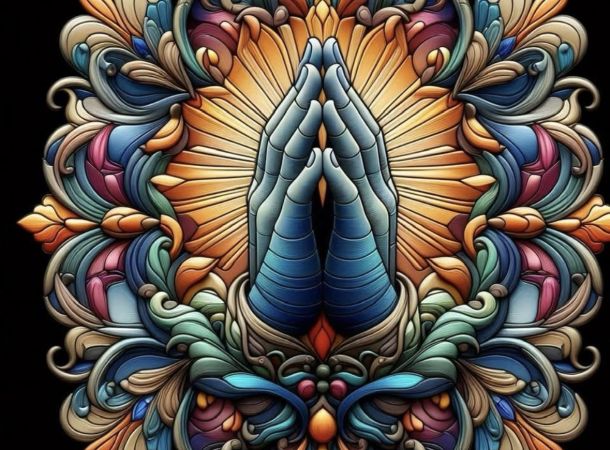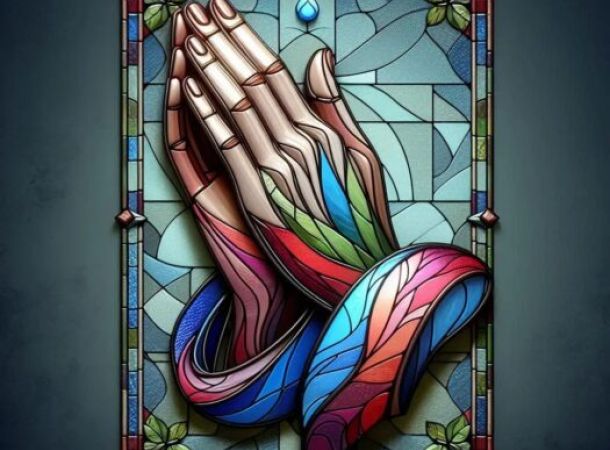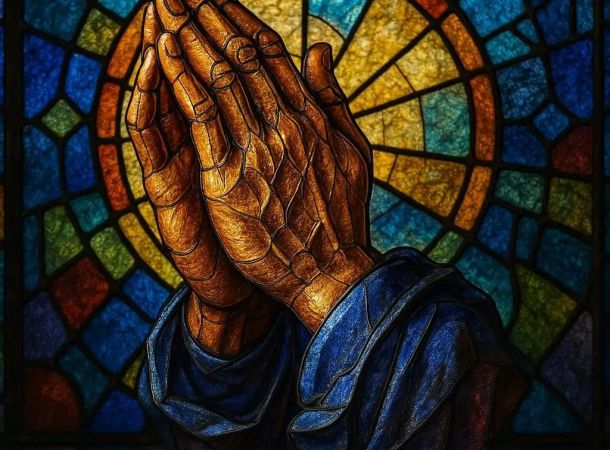The Appointed Times
We are quickly approaching what seems to me to be a recreation pattern in the annual moedim given to us in Leviticus 23. On the fourth day, the luminaries are in the heavens for ot and moed. Moed is the Hebrew word often translated as season. However, an appointed time is a better definition. Moedim is the plural form and includes Passover, Unleavened Bread, First Fruits, Shavuot, Yom Teruah, Yom Kippur and Sukkot. The following is how I believe they point to the seven days of creation.
Day One: The Scriptures describing the Pesach or Passover Lamb point me to the Primordial Light of the first day—the Light of Life.
Revelation 21:23: The city had no need of the sun or of the moon to shine in it, for the glory of God illuminated it. The Lamb is its light. And the nations of those who are saved shall walk in its light, and the kings of the earth bring their glory and honor into it. Its gates shall not be shut at all by day (there shall be no night there).
Exodus 12:12 and 12:23, which implement the law of Passover, also have the word ‘abar or to pass through, which I have consistently connected to the first day of creation. The Israelites were already alive so this is talking about the newness of life.
Day Two-The Feast of Unleavened Bread is mostly about dividing, the action verb of the second day. This moed takes the duty of dividing to an internal environment. We want to be aware of and expel the uncleanliness of sin from our thoughts, words, and deeds. Bread is sustenance as we need food to live. Some people are sustained with pride and hatred and even feed on the bread of deceit. Leaven is the ingredient inside bread that makes it rise and symbolizes deceit, hypocrisy, pride, and malice or hatred inside of our hearts. Pride puffs people up, so naturally, leaven is mostly symbolic of pride. Some people believe they reflect light but darkness (malice) fills their hearts. Yeshua and Paul call this type of leaven hypocrisy.
1 Corinthians 5:7-8: Let us, therefore, celebrate the festival (appointed time), not with the old leaven, the leaven of malice and evil, but with the unleavened bread of sincerity and truth. So let us celebrate the festival (appointed time) not with the old bread of wickedness and evil but with the new bread of sincerity and truth.
The number seven is symbolic of completeness. We should not confine ourselves to eliminate malice, hypocrisy, pride, and deceit for only seven days a year. The seven days of Unleavened Bread should remind us to cleanse our inner person completely.
Exodus 15:15: Seven days you shall eat unleavened bread. On the first day, you shall remove leaven from your houses. For whoever eats leavened bread from the first day until the seventh day, that person shall be cut off from Israel.
Day Three– The third Appointed Time, which connects us to the third day of creation, is the Feast of First Fruits, also called HaBikkurim. God created seeds, fruits, and trees on the third day. At this appointed time, the Israelites would bring the very best of their harvest (produce of seeds, fruits, and trees) as a tithe or offering of gratitude. God gives His very best to the world on this day, the first fruits of his work, Yeshua, the Seed of Abraham, and David. The third day is when Tree Kingdoms are born.
Exodus 23:16: And the Feast of Harvest, the firstfruits of your labors which you have sown in the field; and the Feast of Ingathering at the end of the year, when you have gathered in the fruit of your labors from the field.
Day Four– The fourth annual appointed time is Shavuot. The center of the year. This feast is also called Pentecost in the Apostolic Writings. The first Shavuot is when the Word of God came through the commandments, judgments, and statutes. The second Shavuot in Acts chapter two is when the Spirit of God came. The Spirit and the Word are the central elements of the Kingdom of God. God builds a foundation of justice and righteousness for His throne at this appointed time. The Word and Spirit of God are the tools the rulers of Israel would use to divide between light and darkness, which is what God created the luminaries of the fourth day to do (Gn 1.18).
Psalm 89:14: Righteousness and justice are the foundation of Your throne; Mercy and truth go before Your face.
Fifth Day: Yom Teruah, or the Feasts of Trumpets, is going to coincide with the birds and fish multiplying after their kind on the fifth day. The birds and fish could be symbolic of the subjects of a kingdom. We multiply by bringing others into the covenant or making disciples. Yom Teruah is a time when those that have been multiplied will gather under His Wings. The sheep who know their Shephard will hear His voice. The sound of the shofar (trumpet), which could allude to God’s voice, calls to those who are listening for it. The blowing of the shofar is to awaken, a call to march in formation for war, gather for the coronation of a king, and repentance. All of these are messages for the subjects of a kingdom.
John 10:27: My sheep hear My voice. I know them, and they follow Me.
Sixth Day: Yom Kippur connects us to the sixth day of creation when God created beasts and humans. On this day, the High Priest sacrifices a beast on the altar as a form of atonement (covering) for humanity. Yom Kippur, or the day of covering, is the highest holy day of the year. A time of deep reflection on our thoughts, words, and actions. What tree have we dwelt under? Which fruits have our souls lusted after? What voice have we continually obeyed, the nefesh (our flesh or human soul) or our spirit? We can symbolically offer up our beast nature on the altar so that our spirit nature can live. This means, we should try to lay down, as an offering, our desires, thoughts, and wants (nefesh) so that the spirit nature (God’s desires and will) in us can ascend as a sweet aroma to God.
Leviticus 23:27: Also the tenth day of this seventh month shall be the Day of Atonement. It shall be a holy convocation for you; you shall afflict (humble or bring low) your souls (nefesh), and offer an offering made by fire to the Lord.
Seventh Day: The Feast of Tabernacles, or Sukkot, points to the final Shabbat. It is because this is when the King sits on the throne. The King brings an end to all of the struggle and hard labor. He maintains order and peace in the land. Yeshua is the last Adam who fulfills the intended creation pattern, He plants the seed of the kingdom. It will be party time as we sit under the Sukkah or the covering of the Holy One.
Every creation pattern shows us how creation itself functions in cycles, everything working together perfectly to create space for the Divine Presence to exist and for the will of God to reign. The moedim are no different. In my opinion, they show us how there are seasons of new life, division, and the spreading of seed through producing the seedy fruit of love, joy, peace, patience, kindness, goodness, faithfulness, gentleness, and self-control. Next is the season of government, then multiplying after like kind, labor, and finally, rest. Which season are we in today as a whole?




Leave a Reply